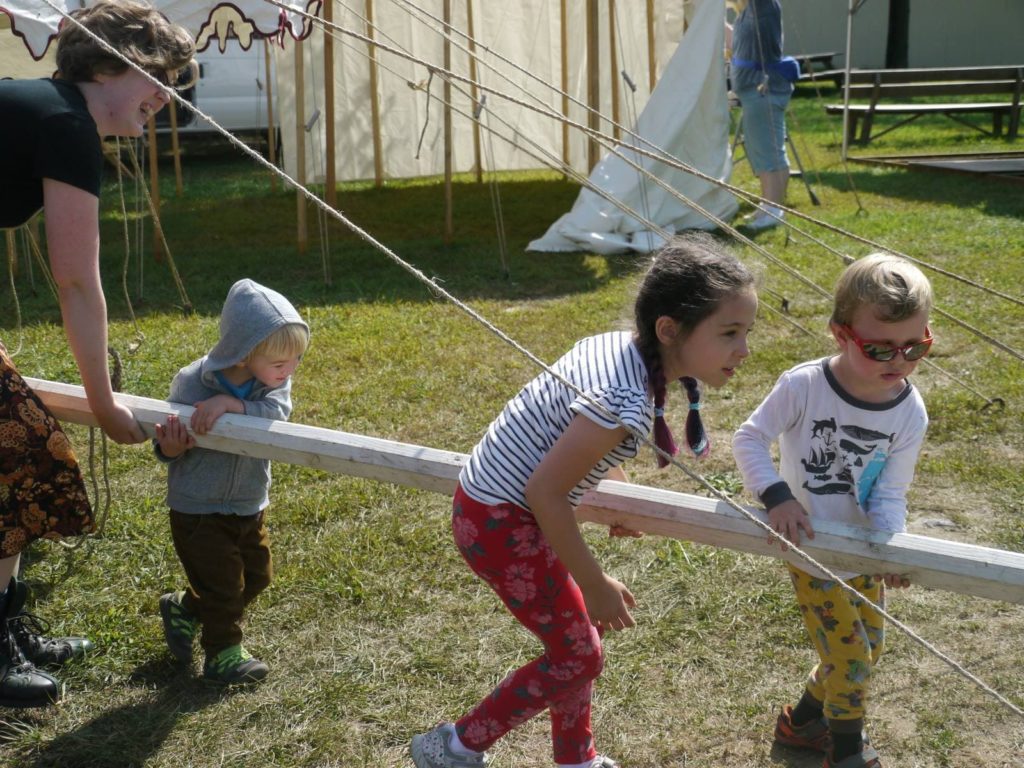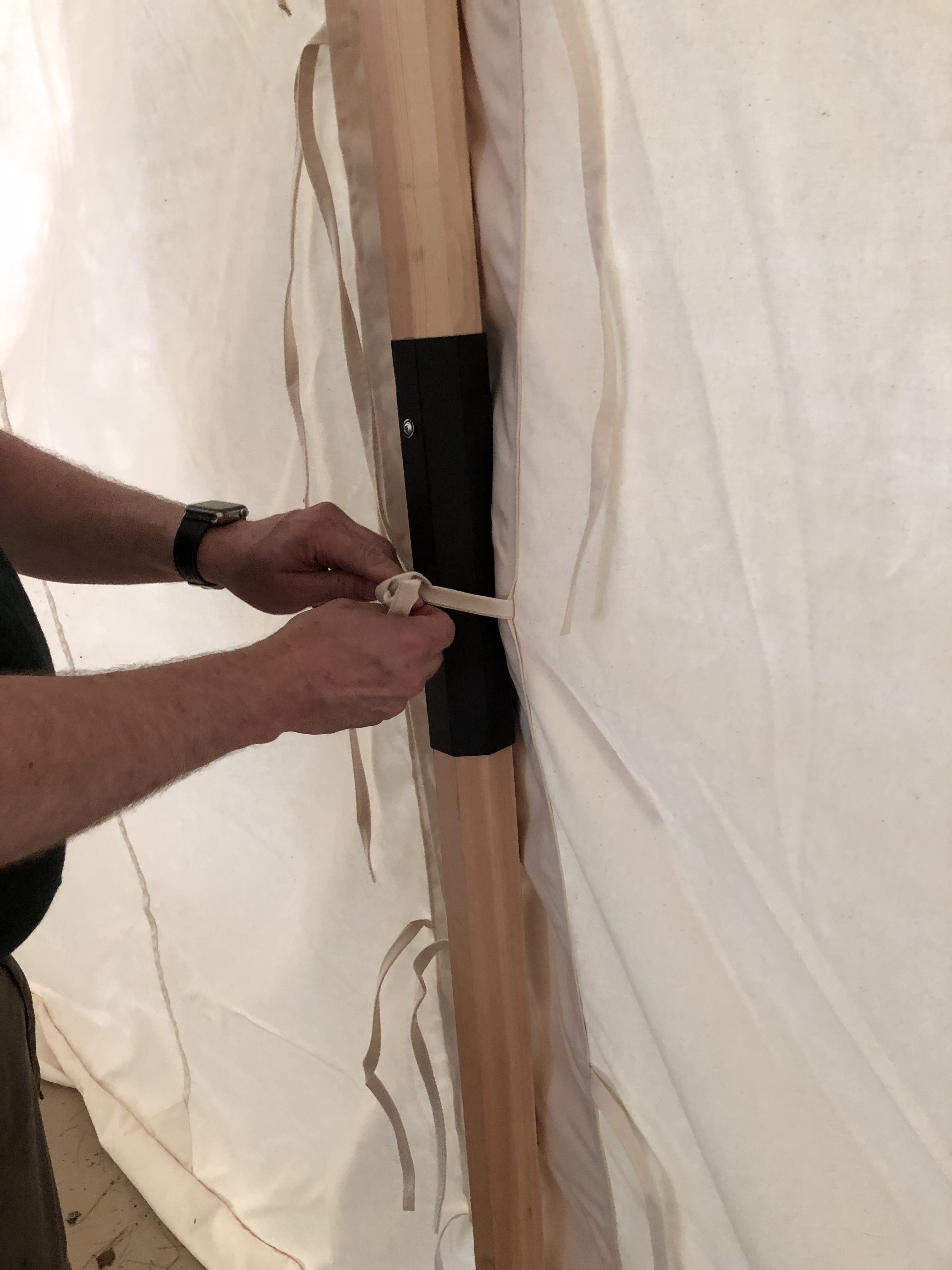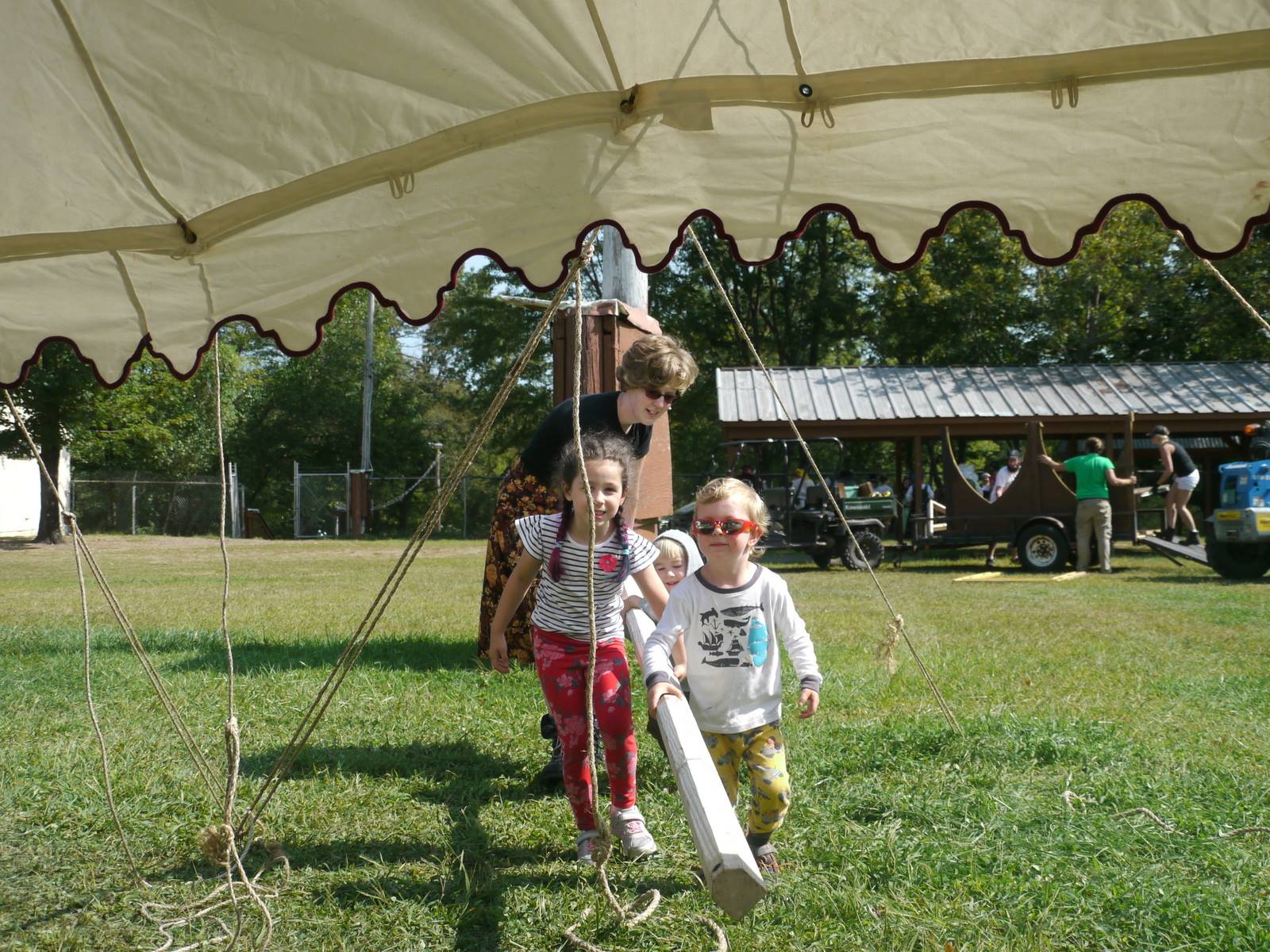
When ordering a tent one of the biggest considerations is what to do about poles. Very few of the tents we make go up without them, needing as few as one in the case of conicals and pyramids to over 30 on large marquees. Most importantly, We provide instructions to make your own poles with every tent purchase. You probably still have questions like: what are the pro and cons to making them yourself, can we make poles for a tent you purchase elsewhere, can we ship them to you outside of the US, does UPS really ship boxes that are 16 feet long?
Here’s the deal. We only sell poles to go with Tentsmiths tents. We’re a company that makes tents, and will make you matching poles as a favor to our customers, but we are not a tent pole company. Even if you place an online order, you will get email from us asking for specifics about your Tentsmiths tent so we can make sure the poles you are ordering will fit your tent.
Tentsmiths can not ship poles internationally. So even if you order a tent from us, if you are outside the U.S. we probably can’t get you your poles. There are rules about shipping wood products that makes their shipping problematic. And the sheer size of tent poles make the cost very prohibitive.
Buying poles from Tentsmiths

If you are buying a tent from us and don’t want to worry about ropes stakes or poles, we can provide all that for you. You order the tent and when everything arrives, you’re all good to go into the backyard and set it up. For long term use we do recommend you seal your poles with paint, stain, or oil, our pole makers will not do that for you. Our poles are beautiful; they’re made by professionals who know their way around wood as well as we know canvas. They make a lot of poles so they know exactly what they’re doing.
The biggest downside to ordering from us is cost. Our carpenters use high quality woods like Douglas fir and mahogany. These woods aren’t cheap, especially during a housing boom, but they are somewhat resistant to rot and water. That comes at a premium, and we’re regularly having to increase what we charge. Tentsmiths makes next to nothing on poles; we offer them as a service to you, but even still they’re pricey. Additionally, shipping your poles is likely to cost more than shipping the canvas, often costing hundreds of dollars on its own.
The last few downsides of Tentsmiths poles: we send your order to our carpenter only after we have made your tent and have exact measurements. This increases the time until you recieve your tent, and if you’re getting your tent close to an event, you may not have the poles to paint or oil in time.
Quick note About Sleeves
We can’t ship poles over a certain size, we must cut them down and add a metal sleeve. Metal sleeves are not historical, but they can be convenient for fitting in a modern vehicle. Sleeves add to the cost of your poles and the weight. Even if you are making your own poles we are happy to sell you a sleeve or 2.
Making your own
We don’t leave you totally on your own, each tent comes with written instructions on how we make poles. Those instructions include exact measurements of your tent, which makes it even easier to make sure your tent will be sound when you set it up. Constructing your own poles means you know the poles inside and out. Knowing how they go together and having all the dimensions saved our bacon when our center pole got left behind and we had to improvise using a banister from Home Depot, or the time we lost the awning poles and had to go chop down some saplings…
Making your own can save you hundreds of dollars if you find the wood locally, not only in shipping but possibly in material costs. If you want full length poles, like a 14 foot upright or a ridge pole longer than 8 or 9 feet, that’s something you can do and avoid freight costs or sleeved poles. Places like Lowes and Home Depot often have some fir options available, otherwise, your local lumberyard can order it for you. We can provide rough sizes to get you going before your tent is shipped. You might also opt to go with different woods than we do, either for authenticity or cost reasons. Also you can make them on your own schedule and can seal your poles as you see fit.
On the downside, well, you need to make it yourself. This means having access to tools, specifically a table saw that can handle the work. If you’re cutting down something like Douglas fir, you will tax a small hobby saw. Stephen killed an old, small, Skil saw making our first poles. On the upside, I now have a much better saw, so maybe it’s the excuse you need to upgrade your shop. The money you save may help pay for that tool.
But time is money, right? For a wedge tent, you’re looking at an hour or 2 of construction work, after you’ve got your lumber. For a marquee it can eat up most of a day, or a weekend if you’re taking your time.
Get someone else to make them
The final option is to find someone local to make your poles. Carpenters, woodworkers, cabinet makers, even our local drum guy can make tent poles. As mentioned above, we provide pretty good instructions so whether it is a member of your reenacting group or you call a pro, you should end up with poles that will hold your tent well. This can save you shipping cost, and the headache of making them yourself.
What do you recommend?
We generally encourage folks to make their own poles, or find someone local to do so. The instructions we provide are very thorough and easy to follow. We made all our own poles for years before buying Tentsmiths, from single pole conicals up to square and round end marquees, and they’re almost all still going strong over a decade in. And while the poles you purchase may be more beautiful, it really isn’t hard to make a good looking pole, especially if you’re going to paint it to seal it up. Our pole sleeves are available to order on their own, should you go this route, and significantly cheaper to ship.
In the end, we’re happy to provide you poles for your Tentsmiths tent that will look great and last for years and/or decades. You’ll need to decide if it’s worth the extra cost for the convenience.

I could use some direction from from some one in this business. My wife and I live on a thirty acre piece of property. 20 years ago there was fire on the property and we lost all the old oak trees which was real sad. Now we have several acres of locus trees which are very tall and straight but we don’t want the trees and have for years cut and burned many trees that could have been made into poles of some sort.
you have any suggestions?
Best regards
Gene Miller
Hi Gene,
Sounds like they would make nice poles, but we are mostly a tent making company. We have sewing machines, not planers. Probably a lumber yard would be better able to help you.